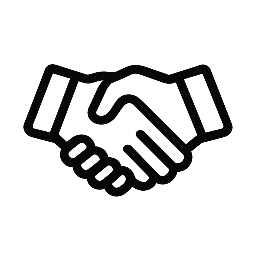BHG-020 BOIN GRAMMAR Suicide ‘healing Slut’ Older Sister Morikawa Anna
In recent years, the intersection of social media, celebrity culture, and mental health has become a focal point of public discourse. Among the various scandals and controversies that have emerged, the case involving BHG-020 BOIN GRAMMAR and the figure of Morikawa Anna has garnered significant attention. This article aims to explore the complex background of this incident, examining the nature of the controversy, the individual’s personal history, and the broader societal implications. Through a detailed analysis, we seek to understand the factors that contributed to the public’s reaction and the ongoing conversations about mental health and social media influence.
Overview of BHG-020 BOIN GRAMMAR and Its Controversies
BHG-020 BOIN GRAMMAR is a relatively obscure entity that gained notoriety primarily through online platforms and niche communities. It is often associated with provocative content, controversial statements, and sometimes confrontational interactions that challenge social norms. The organization or group has been accused of promoting harmful narratives and engaging in behaviors that stir public outrage, leading to widespread criticism. Over time, BHG-020 BOIN GRAMMAR became a symbol of rebellious online culture, attracting both supporters and detractors. Its controversies often revolve around issues of free speech, online harassment, and the responsible use of digital platforms.
The controversies intensified with allegations that BHG-020 BOIN GRAMMAR was involved in spreading misinformation or making disparaging remarks about vulnerable individuals, including celebrities and public figures. These actions prompted investigations by social media platforms and, in some cases, legal authorities. Despite attempts to clarify or dismiss accusations, the group’s provocative reputation persisted, fueling ongoing debates about the boundaries of digital expression. Critics argue that such groups contribute to a toxic online environment, while supporters claim they are exercising their right to challenge societal norms. The controversy surrounding BHG-020 BOIN GRAMMAR highlights the complex dynamics of digital free speech and accountability.
Furthermore, the group became entangled in a high-profile incident involving Morikawa Anna, which further amplified its notoriety. The incident was characterized by intense online discussions, accusations, and emotional reactions from the public. It underscored the volatile nature of internet communities and their capacity to influence public perception of individuals. The controversy also exposed the darker side of social media, including cyberbullying, harassment, and the rapid spread of damaging information. As a result, BHG-020 BOIN GRAMMAR remains a controversial figure in the digital landscape, emblematic of the ongoing struggles over free expression and responsible communication online.
Exploring Morikawa Anna’s Background and Public Persona
Morikawa Anna is a well-known figure in the entertainment industry, recognized for her work as an actress, model, and social media personality. She has cultivated a public image characterized by charm, talent, and a relatable persona that resonates with a broad audience. Born into a family with a modest background, Anna rose to prominence through her appearances in television dramas, commercials, and online content. Her engaging personality and authentic communication style have helped her build a dedicated fanbase, making her one of the more recognizable faces in her field.
Throughout her career, Morikawa Anna has been known for her candidness about personal struggles, including mental health challenges and the pressures of fame. She often uses her platform to advocate for mental health awareness and to foster open conversations about emotional well-being. Her public persona is generally viewed as warm and approachable, which has endeared her to many fans. However, her prominence has also made her a target for online criticism and malicious rumors, sometimes leading to controversy and emotional distress. Despite this, she has maintained a resilient public image, emphasizing her commitment to her craft and her advocacy work.
In recent years, Anna’s social media presence has become a double-edged sword, offering her direct contact with fans but also exposing her to intense scrutiny. Her posts often include personal reflections, behind-the-scenes glimpses, and messages aimed at inspiring others. This transparency has contributed to her popularity but has also made her vulnerable to negative comments and cyberbullying. The incident involving the ‘Suicide Healing Slut’ label and other derogatory remarks has sparked widespread concern about the impact of online harassment on mental health. Anna’s journey reflects the complexities faced by modern celebrities navigating the digital age, balancing authenticity with the need for privacy and protection.
The Context and Impact of the ‘Suicide Healing Slut’ Label
The term ‘Suicide Healing Slut’ emerged as a provocative and deeply controversial label circulated within certain online communities. It was used pejoratively to describe Morikawa Anna, implying that she engaged in behaviors perceived as self-destructive or seeking attention in harmful ways. The label’s origin is rooted in malicious intent, often tied to cyberbullying campaigns aimed at demeaning and dehumanizing her. The phrase combined shock value with stigmatizing language, which amplified its emotional and psychological impact on Anna and her supporters.
The use of such a label reflects broader issues of online harassment, where derogatory terms are weaponized to undermine individuals’ mental health and reputation. In Anna’s case, the label was part of a larger smear campaign that sought to tarnish her image and possibly provoke emotional distress. The impact was profound, leading to public sympathy, increased media coverage, and debates about the ethics of online abuse. It also raised questions about the responsibility of social media platforms in moderating harmful content and protecting vulnerable users. The controversy surrounding the label underscored the dangerous potential of words to cause significant psychological harm, especially to those already facing mental health challenges.
Public reactions to the label were mixed; while many condemned the harassment and called for accountability, others engaged in the debate over free speech and online anonymity. Some critics argued that the label reflected deeper societal issues related to mental health stigma and misogyny. The incident prompted advocacy for stronger anti-cyberbullying measures and increased awareness about the importance of mental health support. Overall, the ‘Suicide Healing Slut’ label became a symbol of the darker side of internet culture, highlighting the urgent need for compassion, empathy, and responsible online behavior.
The aftermath of the incident saw increased media attention on the effects of cyberbullying and the importance of mental health care. Support organizations and mental health professionals emphasized the damaging effects of such labels and called for greater societal understanding of mental health struggles. The controversy served as a wake-up call for online communities, urging them to foster safer and more respectful environments. It also underscored the importance of holding perpetrators accountable and promoting digital literacy to prevent similar incidents in the future. Ultimately, the impact of this label demonstrated how words can influence perceptions and well-being, underscoring the critical role of social responsibility in digital spaces.
Analyzing the Role of Older Sister in Morikawa Anna’s Life
In the context of Morikawa Anna’s personal life, her relationship with her older sister has been a significant aspect of her emotional support system. Siblings often play a crucial role in shaping one’s resilience and outlook, especially during challenging times. Anna has publicly expressed gratitude for her sister’s presence, describing her as a source of stability and encouragement amid the turbulence of fame and online harassment. The older sister’s influence is believed to have provided Anna with a sense of grounding, helping her navigate the complexities of her career and personal struggles.
The role of an older sibling in many cultures encompasses mentorship, protection, and emotional nurturing. In Anna’s case, her sister has been perceived as a confidante who offers advice and comfort during periods of distress. Given the intense scrutiny and cyberbullying Anna faced, her sister’s support likely served as an essential buffer against the negative effects of public backlash. The familial bond may have also contributed to Anna’s resilience, motivating her to continue her advocacy for mental health awareness despite ongoing challenges. While details about her sister remain private, her presence underscores the importance of familial relationships in coping with adversity.
Media coverage and public speculation have sometimes highlighted the sister’s role, framing her as a behind-the-scenes supporter and confidante. Such narratives emphasize the significance of family ties in maintaining mental health and emotional stability for public figures. The dynamic between Anna and her sister illustrates how personal relationships can influence one’s ability to confront and recover from public controversies. It also raises awareness of the importance of a strong support network in managing the stresses associated with fame and social media. Ultimately, the older sister’s role reflects a universal truth: that close family bonds can be vital sources of strength in times of crisis.
This analysis also prompts reflection on the broader societal value of family support systems, especially for individuals exposed to online harassment and mental health challenges. The case of Morikawa Anna exemplifies how personal relationships can serve as protective factors, fostering resilience and hope. It highlights the need for increased awareness and accessible support networks for those facing mental health difficulties, whether in the public eye or private life. Recognizing the influence of family can help destigmatize mental health issues and promote a culture of empathy and understanding. As the conversation around mental health continues to evolve, stories like Anna’s underscore the importance of nurturing supportive relationships to foster healing and recovery.
Public Reactions and Media Coverage Surrounding the Incident
The incident involving Morikawa Anna and the derogatory label triggered a wide spectrum of reactions from the public and media outlets. Social media platforms became battlegrounds where supporters rallied around Anna, condemning the harassment and demanding accountability from those responsible for spreading harmful content. Many fans and mental health advocates expressed concern over the psychological toll of cyberbullying, emphasizing the need for greater protections and education about responsible online behavior. The hashtag campaigns and online petitions aimed to raise awareness and promote empathy, reflecting a collective desire to combat cruelty in digital spaces.
Media coverage varied from sympathetic profiles highlighting Anna’s struggles to critical analyses of online culture’s destructive tendencies. Some outlets focused on the broader societal issues, such as misogyny, mental health stigma, and the unchecked power of anonymity online. Others scrutinized the role of social media platforms in enabling such harassment, calling for stricter moderation and accountability measures. The



